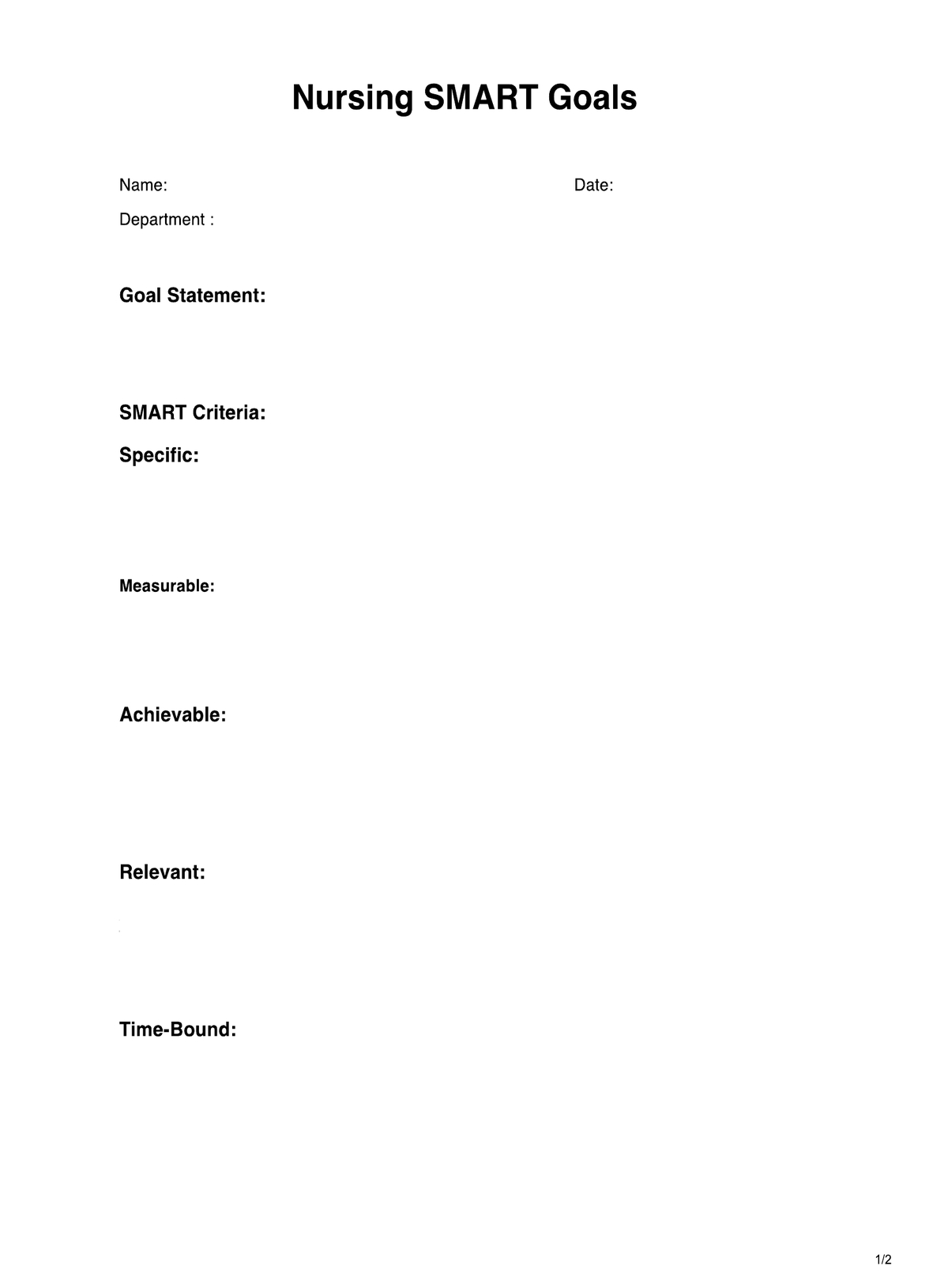SMART goals in nursing are specific, measurable, achievable, relevant, and time-bound objectives that healthcare professionals set to enhance patient care, safety, and efficiency. This framework ensures clarity, focus, and accountability in goal-setting.

SMART Goals Nursing Template
Enhance nursing efficiency with our SMART Goals Nursing Template, fostering precision and accountability in healthcare goal-setting. Elevate patient care today!
SMART Goals Nursing Template Template
Commonly asked questions
SMART goals are crucial for nurses as they provide a structured approach to goal-setting, promoting measurable progress in critical areas such as patient outcomes, safety protocols, communication skills, and professional development. This methodology ensures nurses can continuously improve their practices and contribute to the overall success of healthcare initiatives.
To create SMART goals in nursing, define specific and measurable objectives achievable within your current role, relevant to patient care, and time-bound for a clear timeframe. Utilize the SMART criteria to guide your goal-setting process, ensuring each goal is well-defined and focused on continuous improvement.
EHR and practice management software
Get started for free
*No credit card required
Free
$0/usd
Unlimited clients
Telehealth
1GB of storage
Client portal text
Automated billing and online payments











